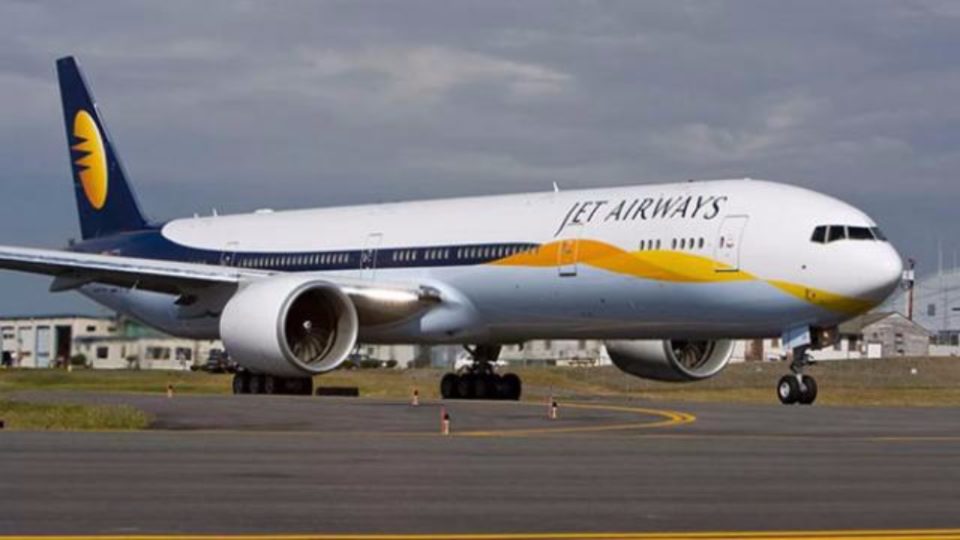Jet Airways Founder, Naresh Goyal recently announced his formal exit from the airline, saying he had agreed to “sacrifice” his “every control and interest” in the carrier.
India’s second-biggest airline until January is currently the smallest, with less than 15 planes flying local routes. Jet’s long-haul operations to Amsterdam and London are less affected because the airline owns the wide-bodied Airbus A330s and Boeing 777s deployed on these routes. However, a New Delhi based travel consultant who wished not to be named said that they are suggesting their clients not to book Jet Airways. “I think that the Jet Airways is going the Kingfisher way,” he said.
Jet Airways had submitted an operational revival plan to India’s aviation regulator earlier this month, claiming it would have 75 per cent of its fleet up by the end of April. As per reports the Directorate General of Civil Aviation (DGCA) has rejected the plan as too ambitious.
The bidding process for stake sale in the cash-starved Jet Airways is likely to commence this month. The SBI-led consortium of 26 lenders has now the management control of the full-service carrier under a debt-recast plan. SBI is the lead lender to Jet Airways, which has a debt burden of Rs. 8,000 crore.
Under the debt resolution plan approved by the Jet Airways’ board on March 25, lenders have taken majority stake in the airline and are set to infuse Rs. 1,500 crore funds. Besides, the carrier’s Founder and Promoter Naresh Goyal as well as his wife Anita Goyal quit the board.
Acute financial crunch has forced the airline to ground aircraft, cancel flights and delay payment of salaries, including to pilots. After taking stock of the current situation at the airline, which is currently operating less than 30 planes, the lenders said they would pursue resolution plan for the carrier in a time-bound manner under the present legal and regulatory framework.
Lessors to Jet Airways Ltd are planning to ask India’s aviation regulator to de-register many more planes leased to the airline, three sources said, signalling a planned bailout of the debt-laden carrier is failing to assuage their concerns.
About six lessors are expected to apply to the Directorate General of Civil Aviation (DGCA) to de-register up to 15 planes that have already been grounded, over the next 10 days, one of the sources with direct knowledge of the matter told Reuters.
This is in addition to the five planes that MC Aviation Partners, a subsidiary of Mitsubishi Corp, applied to de-register, the source said. Once de-registered, lessors can take the plane out of the country and lease them to other airlines.
While some lessors have already taken their planes out after a mutual agreement with Jet, sources say the latest applications to do so are on a non-consensual basis. This deepens the crisis for Jet that has had to ground more than three-quarters of its fleet of 119 planes, many due to non-payment to lessors, leading to hundreds of flight cancellations.
It was not immediately clear which of its lessors were planning to apply for de-registration in the coming days. About 100 of Jet’s 119 mainly Boeing planes are leased by companies such as Avolon, GE Capital Aviation Services and AerCap Holdings.
Avolon, one of the world’s biggest aircraft lessors, has applied to the DGCA to take two of its planes placed with Jet outside of India, making it the first to pull planes out on a non-consensual basis.
Reflecting the overall risk-off sentiment, Indian Oil halted jet fuel supplies to the airline, saying it hopes to soon resolve payment issue with Jet.
“The lenders are cognisant that the outcome of efforts of the lenders will depend on the interest shown by the parties on sale of stake in the company,” the statement issued by lenders said. “Whilst all efforts will be made for the stake sale by lenders, other options may be considered by the lenders should these efforts not result in an acceptable outcome,” it said.
(With agency inputs)

